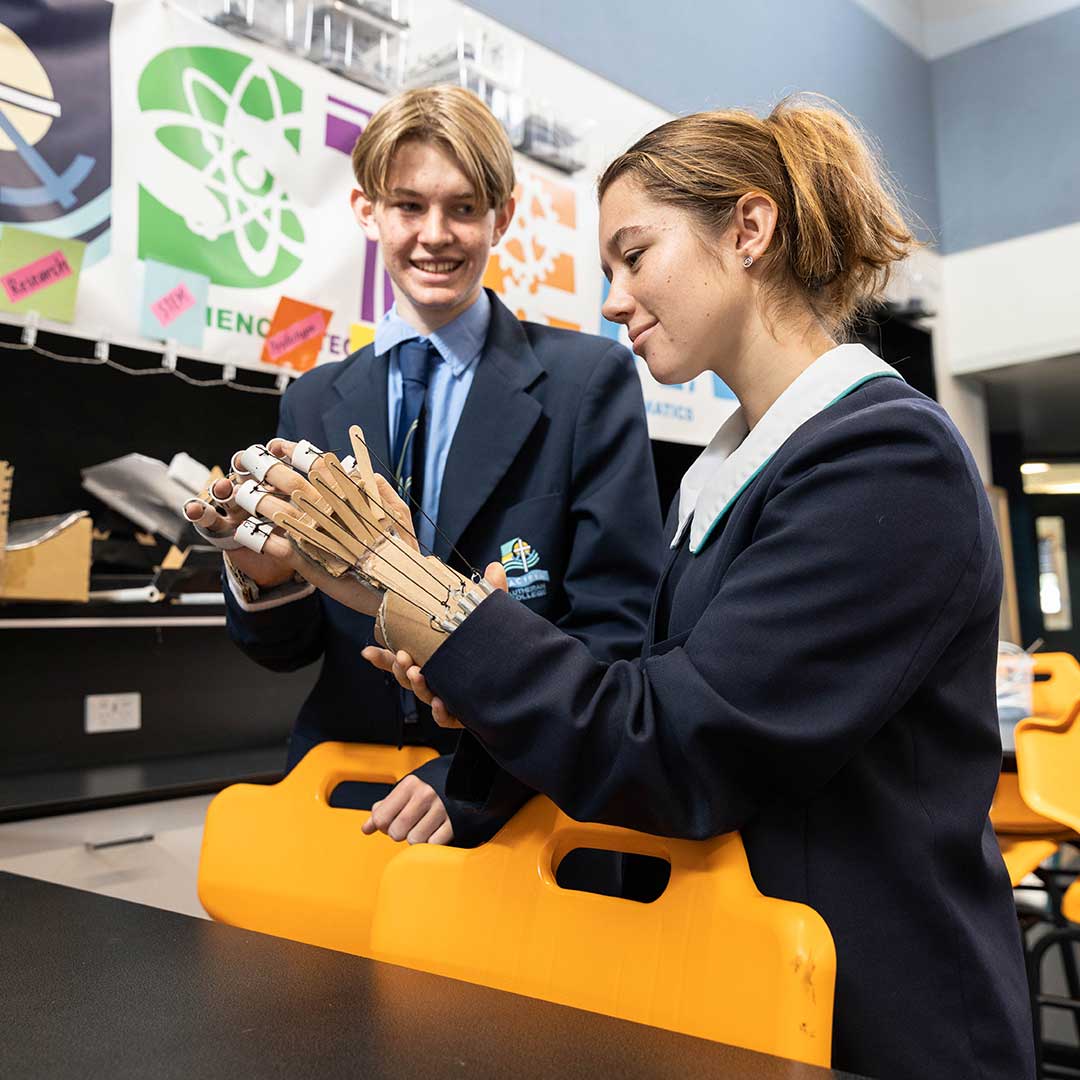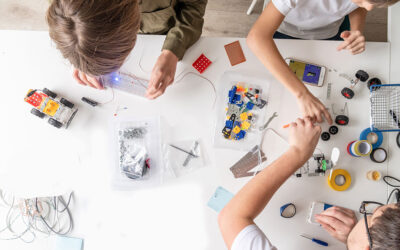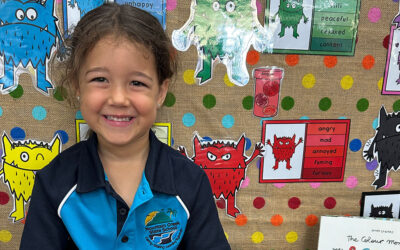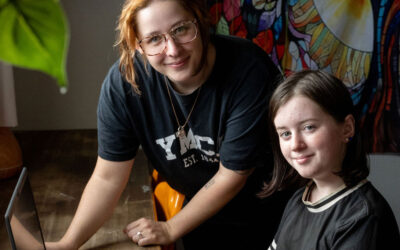Pacific Lutheran College Sunshine Coast has introduced an inquiry-based learning program that sets the stage for a lifelong love of learning, which students, teachers, and parents embrace.
What does inquiry-based learning look like in Prep to Year 2 at Pacific Lutheran College?
“Inquiry-based learning in the early years, specifically in Prep to Year 2, is designed to foster curiosity, critical thinking, and a love for learning. Pacific focuses on providing our young children with a foundation for future learning while helping them develop essential skills and knowledge.” Mrs Sue Zweck, Head of Learning K- 5.
Here is what inquiry-based learning looks like in the Early Years at Pacific:
- Child-centered: Inquiry-based learning begins with the child’s interests, questions, and observations. We pay close attention to what children are curious about and build on these interests to guide learning experiences.
- Hands-on learning: Activities are hands-on, experiential, and play-based, as we know children learn best through concrete experiences and manipulatives.
- Open-ended questions: We use open-ended questions and Thinking Routines to stimulate thinking and encourage children to explore and experiment. These questions often begin with words like “what if,” “how,” or “why.”
- Exploration and play: Play is a fundamental aspect of early childhood learning. Children explore, experiment, and make discoveries through play. Our teachers create play-based environments that encourage investigation and imagination.
- Cross curricula units: Inquiry-based learning often integrates multiple subjects (e.g., science, math, literacy) within a single activity or project. This helps children see the connections between different areas of knowledge.
- Project-based learning: Teachers may design projects or investigations that span several days or weeks. These projects allow children to delve deeply into a topic of interest, ask questions, and find answers collaboratively.
- Observation and documentation: We observe children’s actions, listen to their conversations, and document their discoveries. This documentation can take the form of notes, photos, or children’s own work. It helps guide further learning and is celebrated on the online platform Seesaw, where there is an opportunity for instant feedback.
- Scaffolding: Teachers provide just enough support and guidance to help children move forward in their learning. This support is adjusted based on individual needs and progress.
- Reflection and discussion: Children are encouraged to reflect on their learning and discuss their findings with teachers and peers. This helps reinforce their understanding and communication skills.
- Encouraging curiosity: Teachers foster children’s natural curiosity by creating an environment where questions are valued and there’s room for exploration and experimentation.
- Assessment: Assessment in these early years focuses on understanding children’s progress and development rather than traditional testing. It may involve observing and documenting their learning journey, often through portfolios or narratives.
- Differentiated instruction: Teachers recognise that every child is unique and may progress at their own pace. Differentiated instruction is used to meet individual needs and interests.

Secondary students at Pacific Lutheran College, build a robotic hand as part of the new inquiry-based learning program. Credit: Supplied.
Year 8 Philosophical Inquiry
Philosophical Inquiry is a core subject for all Year 8 Pacific students. Research suggests that regular participation in philosophical inquiry is associated with sustained gains across academic, intellectual, and emotional domains. So, what is it, and what have the Year 8 Pacific students been doing?
Philosophy is essentially the pursuit of wisdom, and the ‘Inquiry’ involves reflection and metacognition, or more simply, thinking about our own thinking. The subject focuses on establishing collaborative dialogue and reflection, aiming to develop students’ reasoning skills and their ability to justify their own thinking when the answer is unclear.
“In Semester 1, the concepts discussed were identity, intelligence, the mind, and mindset. Lessons have focused on formulating open-ended inquiry questions, identifying generalisations, providing counterexamples and making distinctions between concepts such as thoughts and knowledge,” shares Mrs Jo Belchamber, Head of Learning Middle College.
“Through discussion, students are encouraged to clarify meaning, identify assumptions, and build arguments and counterarguments. Philosophical Inquiry provides a strong foundation for students to hone their intellectual skills within Pacific’s learning framework, Teaching for Understanding.” Mrs Belchamber.
Pacific Lutheran partners with UQ researchers
This year, a team of Pacific Lutheran College teachers has embarked on an exciting year-long partnership with researchers from the University of Queensland’s Learning Lab to investigate Middle College students’ learning at Pacific Lutheran College.
UQ’s Learning Lab involves researchers from the scientific disciplines of education, psychology, and neuroscience. The lab’s collective aim is to convert research into practice in Pacific classrooms. It uses the lens of the Science of Learning research to connect cognitive neuroscience and teaching practice to improve student learning outcomes.
The team of experienced Pacific Middle College teachers, led by Mrs Jo Belchamber, Pacific Lutheran College Head of Learning Middle College, will investigate the power of self-regulated learning across Years 6-9 classrooms. This project is based on the Science of Learning research that explores changes in the brain during pre-adolescence and adolescence as students respond to academic challenges.
“Through the Science of Learning research approach, we aim to assist our Middle College students to develop intellectual dispositions found within the Pacific Lutheran College’s Four Pillars of Learning – Learning to Be, Learning Together, Learning to Learn and Learning to Know and Do, which support our students to grow capabilities important for all dimensions of life,” shares Mrs Belchamber.
Keep Reading
Culture of caring for the community instilled in learning at Pacific Lutheran College
Pacific Lutheran competes at International Conference
Prep students flourish into lifelong learners at Pacific Lutheran
Servicing Brisbane, Gold Coast, Sunshine Coast and beyond, Kids on the Coast is an online guide for parents with kids events, attractions & things to do with kids, schools and education, school holiday guides, health & wellbeing for families, parenting and lifestyle news located on Gold Coast, Sunshine Coast & Brisbane, QLD.


